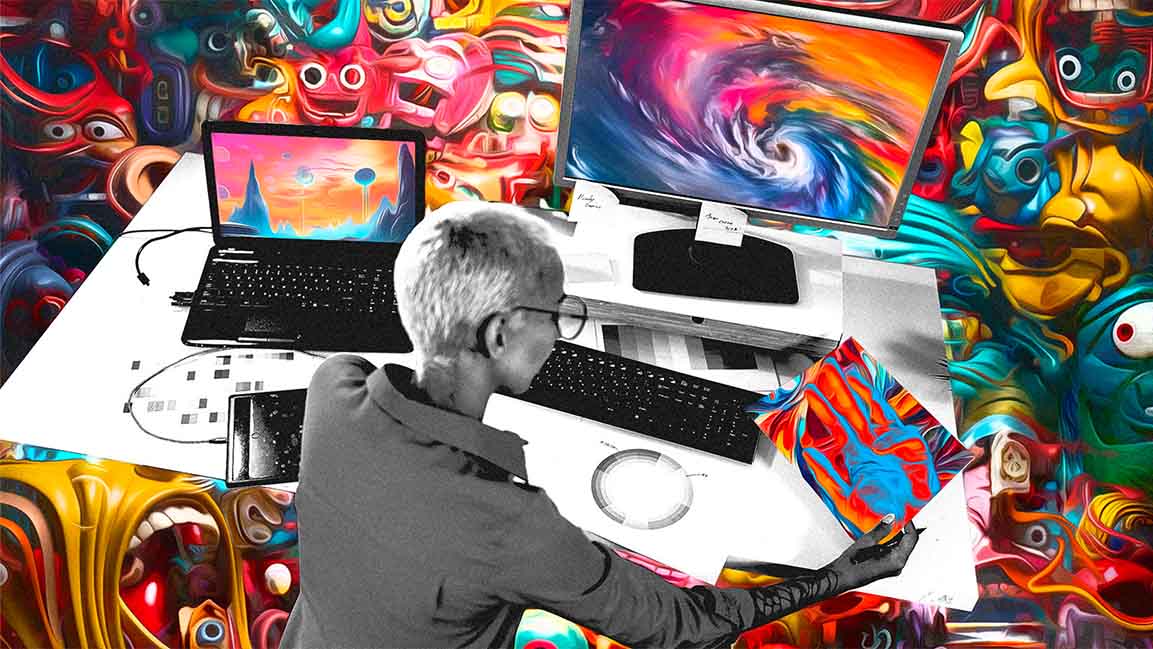- | 8:00 am
Meet the woman transforming the fashion industry into a force for good
How do you turn a notoriously dirty industry into something that benefits the world? Federica Marchionni, CEO of the Global Fashion Agenda, has a few ideas.

Federica Marchionni has led many companies, from Ferrari and Dolce & Gabbana in her native Italy to serving as CEO of the American retailer Land’s End. But in the middle of the pandemic, she saw the top job open up at the Global Fashion Agenda, a Danish organization committed to helping the fashion industry become more sustainable.
“When I saw the Global Fashion Agenda was looking for a CEO, the first thing I did was I went to church to pray,” she tells me. “I really wanted this position. It was the middle of the pandemic: I was stuck in Italy and couldn’t move to Denmark, where the GFA is based. But it ended up working out.”
Over the past three years, she’s transformed the mission of the GFA from merely making sustainability a priority in the fashion industry to making the industry a force for good in the world. The GFA is bringing renewable energy to manufacturing hubs in Bangladesh, ensuring fashion workers in Cambodia and Vietnam have access to safe, well-paid work in clothing factories, and supporting startups developing fabric recycling technology.
We’re at a moment when many sustainability advocates feel discouraged. Mega polluters like Shein and Temu are growing quickly. At the same time, the innovative startup Renewcell, which many hoped would make widespread clothing recycling a reality, recently filed for bankruptcy. In the face of all these challenges, Marchionni takes a long-term view. And she believes that the fashion industry is, in fact, in the midst of a major positive transformation. Here’s why she believes we should keep moving forward.
Many young people seem very concerned about the future of the planet. But they’re also the ones who are buying products from ultra-fast-fashion brands like Shein and Temu. What do you think is going on?
Young people have been trained to shop at a very cheap price. And yes, it’s contradictory and incoherent when you consider their beliefs about sustainability.
We need to be patient and keep educating them about how their shopping choices affect the environment. One thing I encourage schools to do is to take schoolchildren to landfills to show them the piles of clothes that are entering landfills. And explaining to them that disposable clothes are just creating waste.
I also think it’s incredibly important to educate parents about how to shop, because they are modeling for their children how to make good decisions about what to buy. If we teach them that owning fewer, more durable clothes is a good thing, they will bring this thinking with them when they are old enough to shop on their own.
But I also think that this younger generation is seeing firsthand the reality of climate change. They’re growing up with fires and floods happening all around them. And it is very scary. It’s unfortunate, but I believe this will increasingly be a trigger for them to make better choices.
Many of us in the world of sustainable fashion believe things aren’t moving forward fast enough. What will it take for fashion not just to stop polluting, but to be a force for good?
I’m an optimist, and I believe it will happen. Don’t get me wrong: It will be difficult because it is a complex system that requires systemic change. But there are ways to get there.
One major priority is innovation. We’re seeing a lot of smarter material options available on the market. Companies are thinking about the entire process of creating fabrics, from the raw materials to the chemicals to how these materials can fit into a circular system with recycling.
In some cases, transformation will take time, but we need to start making these changes today. We launched an initiative to build a wind park in Bangladesh, which currently uses fossil fuels. We will need to wait till 2026 or 2028 for it to go into effect, but it’s in motion.
How big of a problem is overproduction in the industry?
It’s a huge problem. In the American retail system there’s pressure to do regular promotions so that you can hit your financial targets. But this just creates a cycle of overproduction and overconsumption. Instead, they should be focused on creating more durable products that people can wear longer. This also means creating more classic styles that won’t go out of fashion.
The problem is that many companies are incentivized to focus on short-term growth rather than a long-term vision. It takes brands like Patagonia to show us that it is possible to have a broader, longer-term vision that prioritizes the planet and human rights while still being very successful.
Many of us are losing hope that big companies can and will become more sustainable. We’re putting our faith in the smaller startups that are doing things better. But it’s harder for them to have impact. Do you think big companies have the capacity to change?
I don’t know exactly how much capacity they have today, but I believe the consumer can and will make them change. Companies are very skilled at responding to business needs.
Think about e-commerce. There are so many brands that went out of business because they didn’t adjust quickly enough to the internet revolution. The same thing will happen with sustainability.
But I also think there will be interplay between the innovative small players and the larger companies. These smaller companies are coming up with the technology and are inspiring the bigger companies to change the way they work. And in some cases, the bigger companies are acquiring their technology. So as an industry, we will move forward.








































